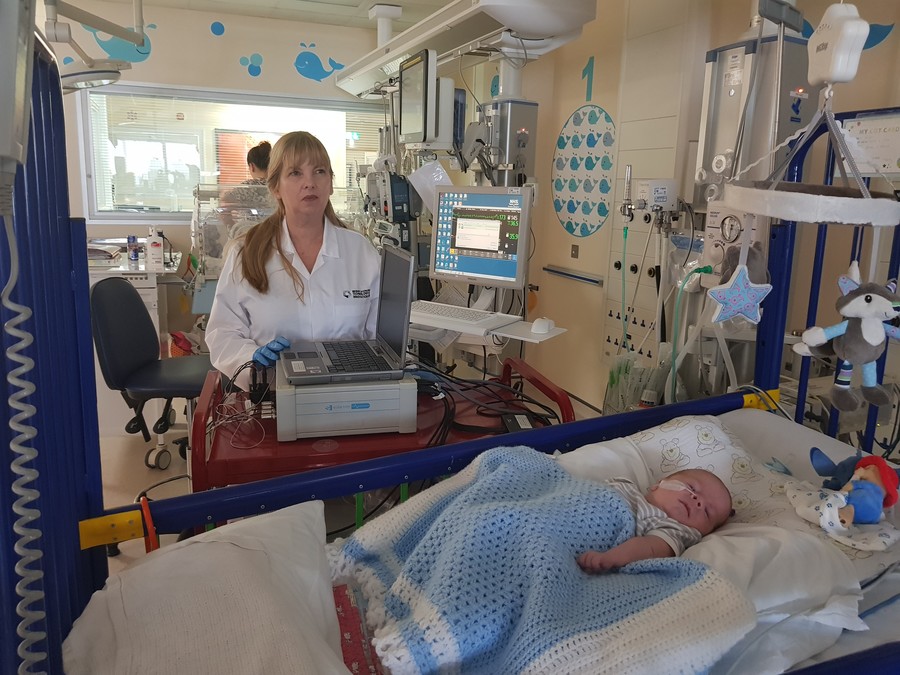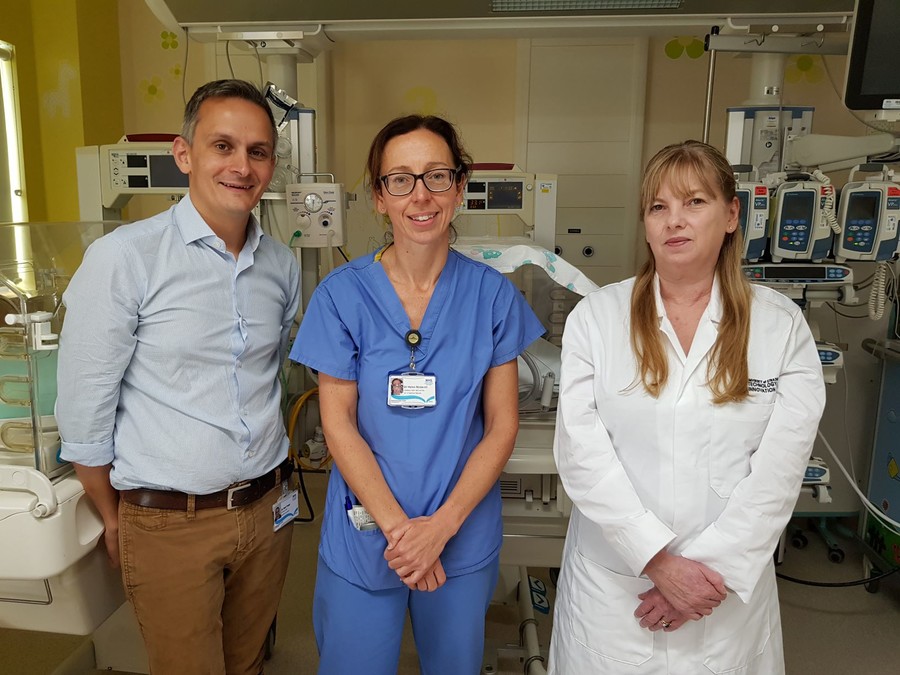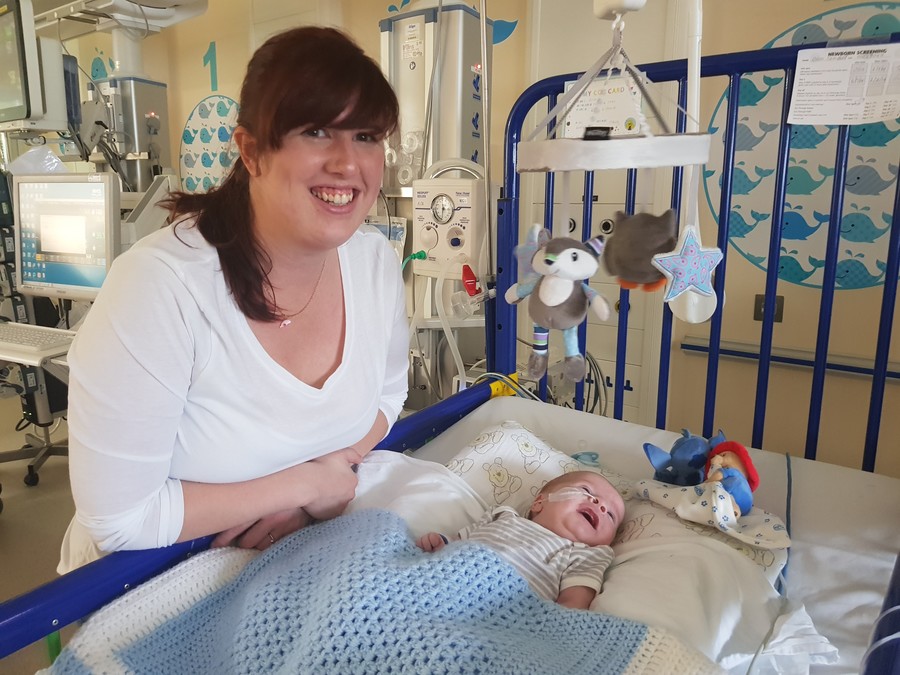Gentler Tests for Tiny Babies
We are proud to have funded pioneering research to bring gentler testing to our tiny babies.
Through our research, technology has been developed to replace invasive blood sampling procedures for newborn babies in intensive care through the use of a patch placed on the skin.

When babies are born early, it is vital to track levels of glucose, lactate, sodium and potassium in their bodies, as the balance of these can be critical.
The levels are currently measured by heel stick blood tests or blood taken from a vein, which can be distressing for babies and their families. This process also creates the risk of depleting the blood in babies who are already very vulnerable in the neonatal intensive care unit.
Scientists at the University of Strathclyde are researching whether levels of glucose and lactate can instead be accurately collected through the skin through the use of a wearable patch. A clinical trial is in progress with the medical team at the Neonatal Unit of the Royal Hospital for Children in Glasgow.

“Instead of actually having to take blood, our trial is using a skin patch that will collect glucose and lactate, because many of these molecules and ions will also come through the skin."
Professor Patricia Connolly, Biomedical Engineering at the university of Strathclyde
If the technique is found to work, it will be transferred into a future medical device in the form of a wireless patch sensor that could be used for any sick baby.
"Some of the babies in the unit need to have blood samples taken four or more times every day. The sickest babies may need to have samples taken even more frequently, sometimes every hour. The distress and pain of blood sampling in a newborn baby is not just short-term discomfort, but may cause long-term neurodevelopmental issues as well, which this approach could completely avoid."
Dr Neil Patel, consultant Neonatologist
This clinical trial could lead to a transformation in the way babies like Orion are cared for. His Mum Emma agreed to take part in the trail to help give babies like hers the best possible care and experience in the future.
